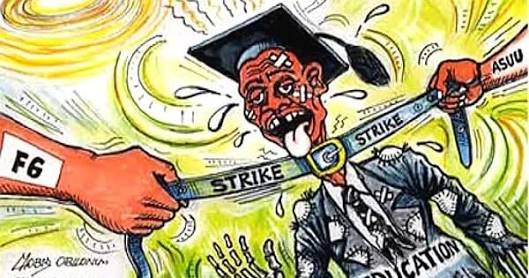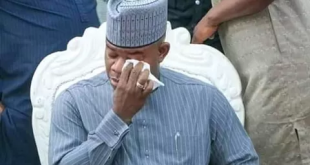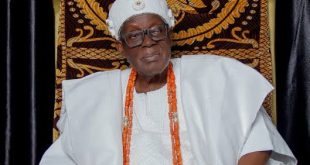- Lawyers warn against illegal strike, CSO tasks government on minimum wage
By Olumide Olusegun, Chibuzor Alli, Funmi Ojo, Oyedunmola Olakunle, Taiwo Niyi and Paulinus Nta
The Parent Teacher Association of Nigeria, along with economists and other stakeholders, has called on the Federal Government to take immediate action to prevent an impending nationwide strike.
This comes in response to the threat by the Academic Staff Union of Universities (ASUU) to declare a strike over the government’s failure to address their demands.
CLICK TO DOWNLOAD NEWSPAPER |
The ASUU has accused the government of ignoring their consistent appeals. Professor Adelaja Odukoya, the coordinator of the Lagos zone of ASUU, made this known while addressing journalists on Tuesday during a conference at the University of Lagos (UNILAG).
The conference was attended by all union branch leaders from the zone.
According to Professor Odukoya, the union is rapidly losing patience over what he described as the government’s ‘insensitivity’ to the plight of its members and public universities. He stated that the only way to avert the proposed industrial action is for the federal government to address their concerns promptly.
This came following the union’s National Executive Council (NEC) meeting held at Obafemi Awolowo University, Ile-Ife, from Saturday, May 11, to Sunday, May 12, 2024.
Professor Odukoya said, “Our union assessed the outcomes of its engagements with the State and Federal governments over the last few months, on matters pertaining to the status of developments around the renegotiated 2009 Agreement, payment of owed salaries and earned academic allowances (EAA), unremitted deductions made by the discredited disruptive and discredited IPPIS, proliferation of universities, and a number of other matters.
“NEC also had a critical review of government policies and actions that had led to the present deteriorated living and working conditions across the country and in our universities particularly.”
He noted that most of the issues mentioned had been lingering and unaddressed by the government for many years.
Professor Odukoya dismissed the threat of a ‘no work, no pay’ rule by the government, adding that the policy is not recognised in global labour laws to which Nigeria is a signatory.
- Parent Teachers Association, Economists, others react
Speaking in an interview with NATIONAL TELESCOPE, the National President of the Parent Teacher Association of Nigeria, Haruna Danjuma urged the Federal Government to attend to ASUU requests to avoid the strike.
He said, “On behalf of the entire parents of the children in our institutions, whatever will be done should be done wisely. Let’s sit down with the government and see to the end of this issue now.
“I also want to call on the Federal Government, to kindly give attention to ASUU to stop ASUU from this indefinite strike.
“Going on strike is not good for our children. So we know the government is so concerned about our children’s future. So also, ASUU is very much committed to seeing to the development of the children’s education.
“So we call on both parties to do the needful and make sure that the issue of indefinite strike should not be a reality.”
An economist and professor at Olabisi Onabanjo University, Sheriffdeen Tella, has warned that the impending strike by ASUU will negatively impact Nigeria’s economy.
“Strike usually results in a loss of manpower, which is detrimental to the economy because it disrupts many activities. A loss of manpower means reduced productivity.
“The mere anticipation of a strike affects labour productivity, as the time that could have been used for productive work is spent discussing strike issues, leading to a decline in output.
“It is harmful for an economy like ours to frequently experience strikes. Unfortunately, the government seems indifferent. They appear to underestimate the importance of labour, given their behaviour.
“Even when addressing minimum wage issues, prices have surged by over 200 percent, in some cases 300 percent. Proposing a wage increase of just 20 or 25 percent for wages that were already insufficient is inadequate.
“They believe they can rely on borrowing and taxes instead of ensuring that people are productive and generating output.
“A strike typically hampers worker productivity, and we are already facing a shortage of output. By disrupting production, the government demonstrates a lack of seriousness.
“They often ignore labor concerns until a strike is underway, and then they scramble for solutions. Even then, they treat the situation lightly, as if it doesn’t matter, which is unfortunate. Constant strikes are damaging to the economy.”
Similarly, a Professor of Economics at the University of Ilorin, Abdulgafar Ijaya, stated, “The investor climate will deteriorate. People conducting business in Nigeria will be affected. With the current high turnover, the situation will worsen.
“You can’t neglect your former lecturers. They recently increased the salaries of the judiciary—judges who were educated by university lecturers.
“Judges’ salaries are being raised, while those who taught them have been earning the same salary since 2008. It’s a terrible situation we find ourselves in.”
Meanwhile, legal practitioner Barrister Bisi Atolagbe has urged the union to follow legal procedures before embarking on a nationwide strike. He warned that strikes not conducted according to these procedures risk being deemed illegal by the National Industrial Court.
He stated, “There are procedures under the Labour Act, and if these procedures are not followed and the strike is challenged at the National Industrial Court, the Court will likely rule the labour action illegal and order the workers to resume work. This has happened many times in Nigeria.
“But when the National Industrial Court has to intervene and rule a strike illegal, it’s because the proper procedures were not followed. The court’s involvement highlights that the crisis is long-standing and requires adherence to legal protocols.
Also, Abuja-based lawyer and human rights activist Barrister Tolu Babaleye expressed disappointment in the government’s response to the ongoing crisis. He stressed concern over the President’s failure to take decisive action to resolve the matter, adding that as the father of the nation, his role is to protect the interests of his citizens.
- CSO tasks FG on minimum wage
A Civil Society Organisation, Network Advancement Program on Poverty, Disaster Risk Reduction (NAPPDRR), has called on the Federal Government to align the minimum wage with the current economic realities.
This comes in response to the Federal Government’s offer of N54,000 as the new minimum wage, a significant disparity from the N615,000 demanded by the Labour Unions.
In an interview with our correspondent, the National President of NAPPDRR, Hon. Al Mustapha Emem Edoho, stated that labour’s demand was excessive and warned that such an amount could escalate the inflation rate in the country if implemented.
He also acknowledged that the government’s offer does not align with the current economic conditions and suggested a minimum wage of N100,000 instead.
However, the President of United Action For Democracy, Emefa Georgewill, disagreed with Edoho’s stance, supporting the Labour Union’s demand for a N615,000 minimum wage.
He argued, “Nigerian lawmakers and ministers receive their substantial pay and allowances, directly or indirectly.
“The amount demanded by Nigerian workers is entirely justified. If the federal government cannot meet their demand, they should step down and let competent individuals take over. We stand in total solidarity with the Nigerian workers.”
 National Telescope national telescope newspaper
National Telescope national telescope newspaper



